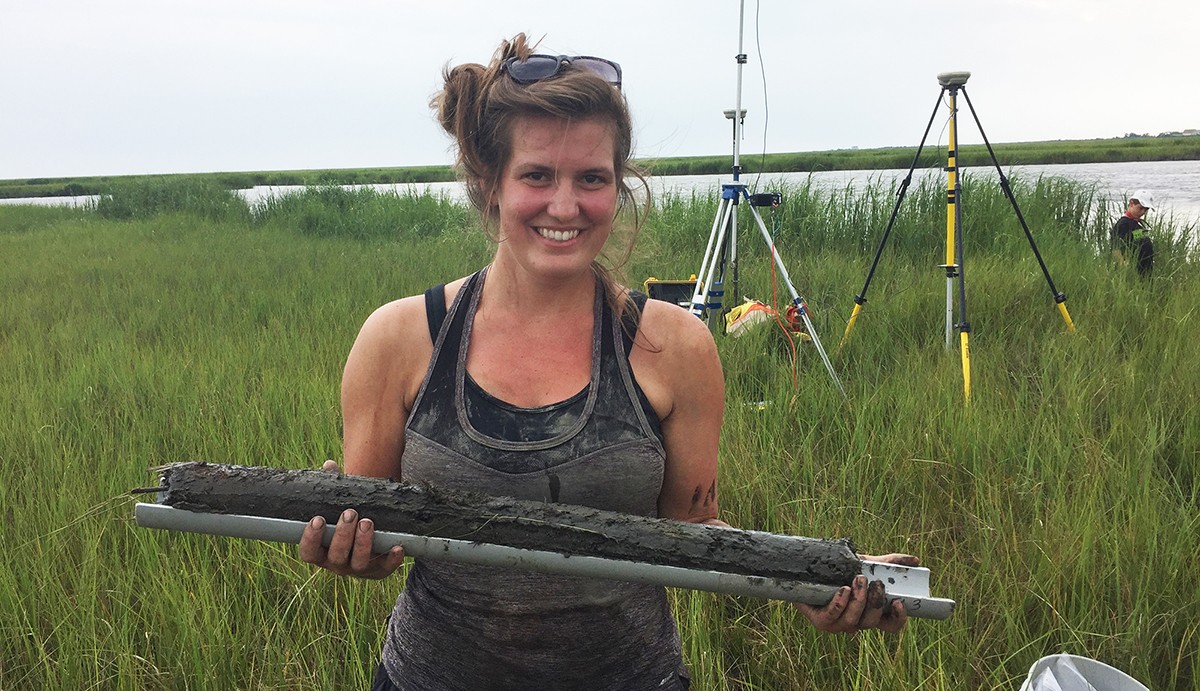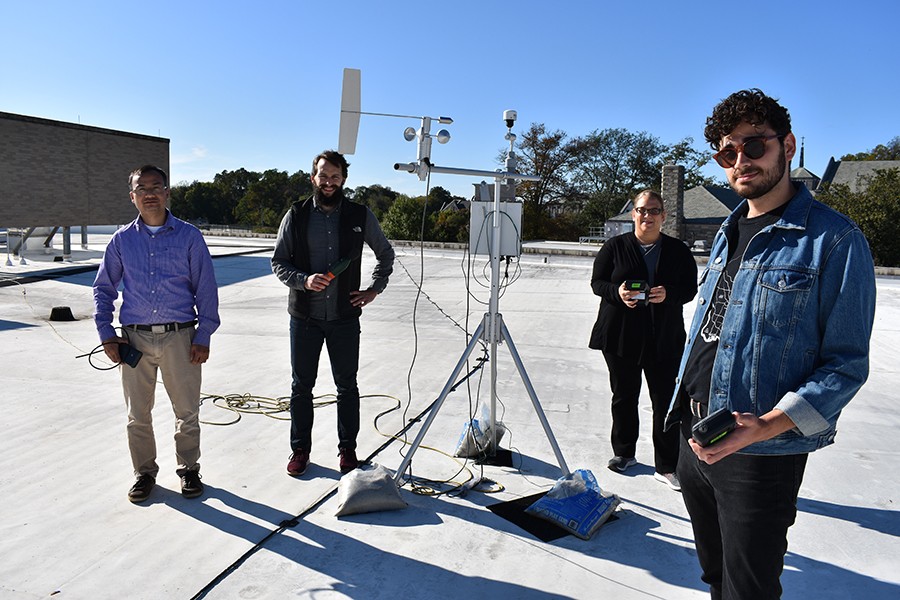RESOURCES AND OPPORTUNITIES

Research Support and Faculty Mentorship
The Graduate Program in Environmental Science supports faculty and student research in a wide range of scholarly interests that span the scope of geography, biology, chemistry and geology and intersect at the nexus of environmental issues. Faculty receive significant funding to support research programs that provide myriad opportunities for students to engage in faculty-mentored independent research.
The Department of Geography and the Environment encourages students to present their research at professional conferences, and will provide modest financial support for conference travel. Graduate students wishing to obtain Departmental support for travel to a professional meeting must also apply to the Graduate Studies Office, which funds travel up to $1,000 ($1,200 for international travel). Once the student portion of the travel funding request form is complete, the student forwards the form to their faculty mentor who completes an evaluation of the request and then forwards the form to the Chair. The faculty mentor should indicate the amount of funding, if any, they are able to provide to support student travel. The Chair will then complete an evaluation and determine the level of Department funding and forward the request to the Graduate Office.
Summer Research Fellowships
You will also have the opportunity to apply for Summer Research funding through the Graduate Studies Office to support travel and other expenses related to your research while in our program. Graduate Student Summer Research Fellowship awards are made on a competitive basis in the amount of $3,500 for work in June, July and August.
Graduate Research Opportunity (GRO-GEV) Fellowship
Graduate students in the Department of Geography and the Environment’s Master of Science in Environmental Science (MSES) program are encouraged to apply to the Graduate Research Opportunity (GEV-GRO) Fellowship. Successful applicants will receive a summer stipend to work on their thesis or capstone research project.
To be considered, applicants must:
- be enrolled in the MSES Program in the Department of Geography and the Environment;
- be otherwise eligible for the CLAS Graduate Summer Research Fellowship;
- submit an identical and complete application to the College’s Summer Research Fellowship Program.
Carefully review the program eligibility and follow the application procedures outlined for the CLAS Graduate Summer Research Fellowship Program, including meeting the same deadline.
The application for the GRO-GEV fellowship is identical to the CLAS Graduate Summer Research Fellowship. Compile the following documents into a single PDF:
- Abstract
- Formal Proposal
- Bibliography or Reference Section
- Appendix
Save the document as LastName_GRO-GEV.pdf as the file name, and email the document as an attachment to Dr. Keith Henderson, MSES Graduate Program Director. Request that your faculty mentor send a faculty evaluation letter (the same letter they submit for the CLAS Summer Research Fellowship) as an email attachment to Dr. Henderson. Only students that have also applied for a Graduate CLAS Summer Research Fellowship Program will be considered for the GRO-GEV Fellowship.
Decisions on funding will be announced in late March / early April following the College decisions. Students are only eligible to receive College or Department-level funding for one summer of their academic program.
Tuition Scholarships and Assistantships
Villanova’s graduate school tuition is very competitive, and there are a number of ways to finance your master's degree in Environmental Science. All of the classes are held in the evenings, permitting you to work while in the program whether you are studying part-time or full-time.
The program offers a number of graduate Tuition Scholarships and Graduate Assistantships. The Tuition Scholarships cover the cost of tuition, while the Graduate Assistantships cover tuition plus a stipend. To be considered for these funding sources, you should apply for admission in the fall semester. Applicants for spring admission cannot be considered for these awards.
There are also assistantships offered by other Villanova departments and offices. If you apply for other University assistantships, you will still be considered for internal department funding.
For more information, visit Financing Your Education.
Benefits for Teachers
Villanova offers a 20% tuition discount if you teach in a public or private school, and a 40% discount if you teach at a Catholic school.
STUDENT RESEARCH SPOTLIGHT - MAYCI SHIMON
Impacts of Salinity Change on Greenhouse Gas Emissions in Marsh Ecosystems Along the Salinity Gradient of the Delaware RiverTidal marsh systems provide important ecosystem services, including water quality functions and nutrient cycling, for a variety of organisms and their surrounding environments. Positioned at the land-water interface, marshes are especially vulnerable to stressors associated with human activities and climate change, including sea level rise (SLR) and saltwater intrusion (SWI). This study may provide clarity on how salinity influences nitrogen cycling and greenhouse gas emissions in these ecosystems.

